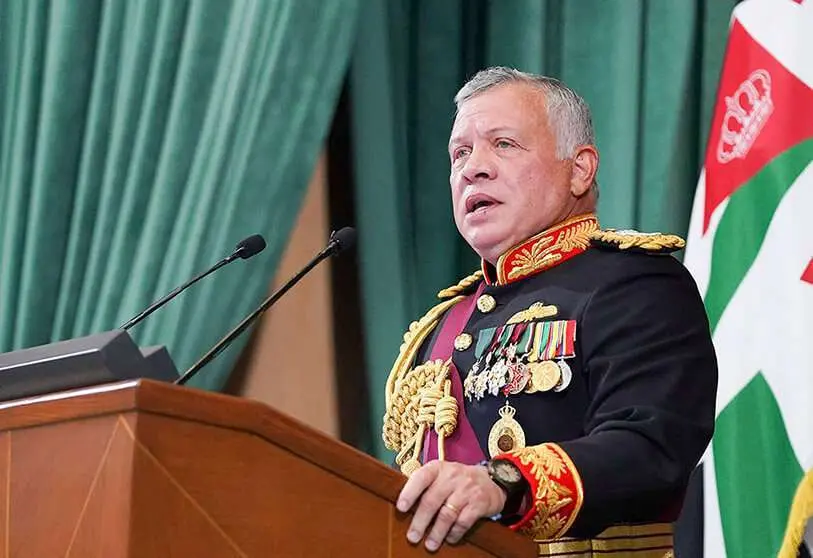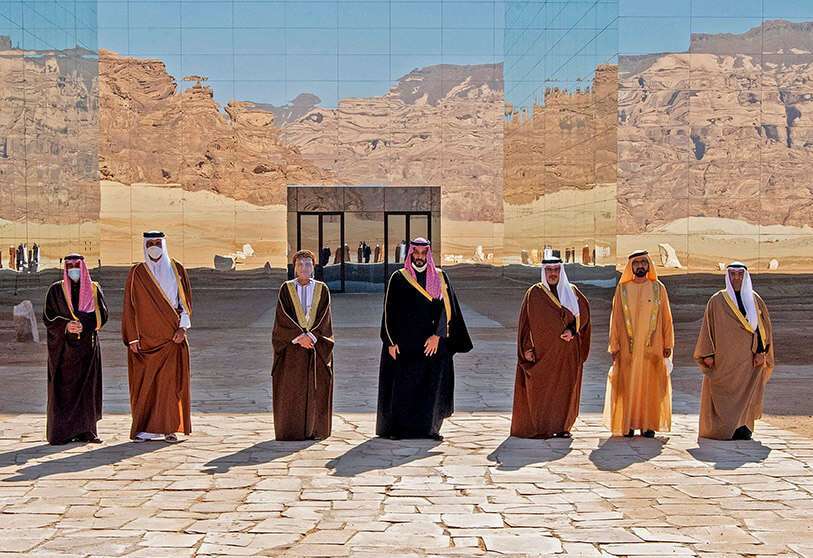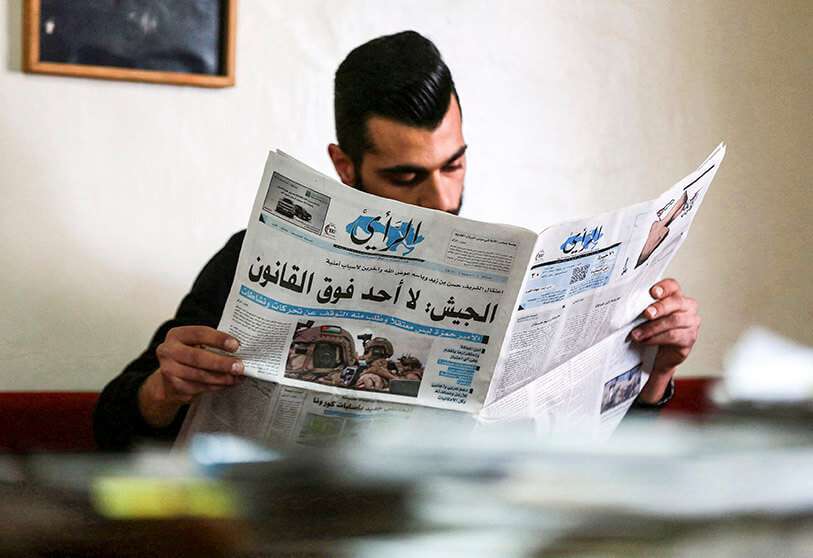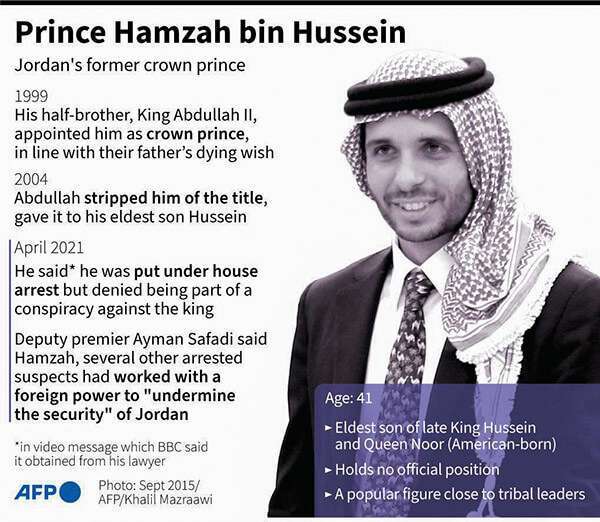Lucha por el poder en Jordania: Marruecos y los países del Golfo se unen a Abdalá II

The reported coup attempt in Jordan has provoked a wave of international support for King Abdullah II, whose country is a key player in the balance of power in the Middle East. The Jordanian government has accused former Crown Prince Hamzah bin Hussein, King Abdullah II's half-brother, of conspiring with foreign forces against the monarch and the country's stability. After the army's top brass accused him of involvement in a plot against state security.
The first appeal to Abdullah II came from another kingdom, Morocco, according to Rabat. Morocco's King Mohammed VI, who came to power in 1999 like Abdullah II, said he had "full and natural solidarity" and "full support for all the decisions taken" by the Jordanian ruler. "This telephone interview was an opportunity for His Majesty King Mohammed VI to ascertain the situation on the basis of the data that the Jordanian sovereign shared with him," a statement from the Moroccan Royal Cabinet said. Hours before the Royal Cabinet statement, the Moroccan Foreign Ministry issued another note expressing Morocco's strong support for the decisions taken by the Jordanian monarch.

The United States also backed the Hashemite ruler following the dismantling of the alleged plot, in which the Aman government implicates Prince Hamzah bin Hussein, the former heir and half-brother of the current monarch. "King Abdullah is a key partner of the United States and has our full support," State Department spokesman Ned Price said in a statement, adding that "we are following the reports closely and are in contact with Jordanian officials".
Arab League Secretary General Ahmed Abulgueit, in a statement, also expressed "full solidarity with the steps taken by the Jordanian leadership to maintain the security of the kingdom and preserve stability" in the country.
The Gulf monarchies came out en bloc to support Abdullah II, and "the security and stability" of their kingdom.

Saudi Arabia, a regional heavyweight and major US ally like Jordan, was among the first to react. The royal palace expressed on Twitter its "full support for all decisions and measures taken by King Abdullah II bin al Hussein and His Highness Crown Prince Al Hussein bin Abdullah II to maintain security and stability", according to the official SPA news agency.
The United Arab Emirates used virtually the same words in a statement released by the WAM agency, supporting "all decisions and measures" of the Jordanian monarch to "protect the security and stability of Jordan and preserve its achievements".
Kuwait, Qatar, Bahrain and Oman have also expressed their support for the Hashemite ruler in recent hours.
Iraq's foreign ministry said in a statement that it "stands by the Jordanian kingdom led by His Majesty King Abdullah II in any step taken to preserve the security and stability of the country and to serve the interests of the brotherly people".
And an Egyptian presidential spokesman expressed Cairo's support "for the brotherly Jordanian Hashemite kingdom, and its leadership represented in His Majesty King Abdullah II bin al-Hussein".
In Lebanon, President Michel Aoun expressed solidarity with "the people and the king" of Jordan in the face of "anything that may affect the stability and security" of the kingdom.

The wave of solidarity was joined by Turkey and Iran, regional powers that are Islamic but outside the Arab world.
The Turkish government expressed its 'strong support' for Abdullah II in a statement from its foreign ministry, warning that 'we follow with concern the events surrounding the detention of a number of people in Jordan'. "We consider that the peace and stability of Jordan, a key country for peace in the Middle East, cannot be separated from the peace and stability of Turkey", the text recalls.
At the same time, the Iranian Foreign Ministry also stressed "the importance of peace and stability" in Jordan. "The Islamic Republic of Iran opposes any foreign interference and believes that all internal affairs of countries should be settled within the framework of the law," said Foreign Ministry spokesman Said Khatibzadeh, who warned in a statement that any internal instability or tension in the West Asian region "benefits the Zionist regime (Israel)".

Israel, whose defence minister, Beny Gantz, considered the recent arrests in Jordan to be "an internal affair" of the neighbouring country, which he stressed is "a strategic ally" with which the Jewish state has "peaceful relations". At a press conference, Gantz stressed his country's interest in keeping Jordan "strong and prosperous", which he considered key to Israeli security and mutual economic interests. Therefore, he added, Israel must do "everything necessary to maintain this alliance that has lasted" for almost three decades, when the two countries signed a peace agreement and established diplomatic relations: after Egypt, which did so in 1979, Jordan was the second Arab country to recognise the Jewish state in 1994.
Russia also expressed its support "for the efforts of the legitimate Jordanian authorities and personally of King Abdullah II to ensure internal stability and order", the Russian Foreign Ministry said in a statement. Moscow confirmed "unchanged readiness" to continue joint cooperation with the regime "aimed at strengthening the traditionally friendly relations between Jordan and Russia for the benefit of the peoples of both countries, peace and security in the Middle East".








